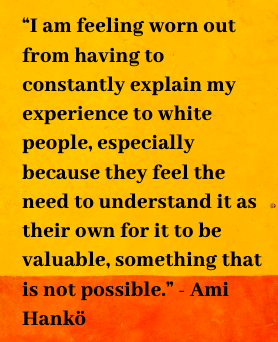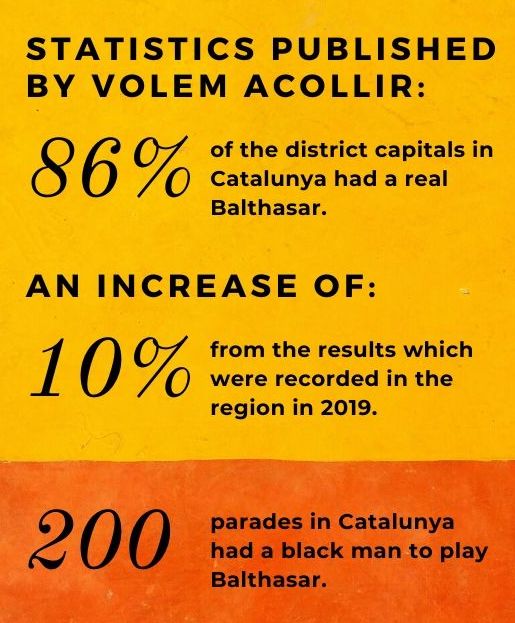![]() By Lucille Brobbey
By Lucille Brobbey
January 28 2020, 18.50
Follow @SW_Londoner
On January 6 Three Kings Day is celebrated each year in Spain where people put on blackface as part of the day.
The parade, Dia de Los Reyes Magos in Spanish, celebrates the arrival of three wise men – Balthasar, Melchior and Gaspar – who visited Jesus and presented him with gifts in Bethlehem following his birth.
Historically Balthasar is portrayed as a black man. Yet in some districts in Spain, they choose to use blackface to represent Balthasar as opposed to finding a black person to take part in the parade.
In Alcoy, Alicante, the festival has been celebrated there since 1885 and features an overwhelming amount of white people using blackface during the parade.
Ami Hankö, a 26-year-old Spanish native’s, first memory of attending the parade is when she was five years old in Cabrils, Barcelona.
Ms Hankö said: “As a child, my experience [with the parade] was always positive. Especially because in my hometown, Balthasar, the black king, and his helpers have always been portrayed by black people.
“As a mixed-race child that was one of the few times of the year I got to see black people in such a respected position and was one of the few times I got to see a person that I felt resembled me.”
After the parade the Three Wise Kings will go to a church or civic centre and the children will line up to deliver their letters to a king outlining what present they want.
Ms Hankö said she will always remember the first time she saw a white person in blackface portraying Balthasar. She went to the neighbouring town’s parade when she was eight years old with a friend and her parents.
She said: “At the parade there weren’t any black people. As every year, I was excited to see Balthasar and was horrified when I saw a white man painted in black. I did not understand what was going on and started to feel uneasy. It shook me to the core.”
WATCH THE VIDEO: Why do people still wear blackface during the festival?
Ms Hankö said: “It’s frustrating because a lot of it comes from ignorance, but what is worse is the response we get when we [black people] demand accountability, which is none or has quite an aggressive response.
“There is no will to understand or to have any kind of sensibility towards what black people feel in Spain, which is still seen as a non-reality, we can’t be Spanish because we are black.”
Ms Hankö described the Alcoy case as a great example of the lack of willingness to understand and respect a black person’s experience in Spain.
She said: “People hide behind the excuse that it is ‘tradition’ and therefore, can’t be changed.”

Organisations such as Volem Acollir and Black Barcelona Encuentro denounce the use of blackface during the parade.
Volem Acollir has been campaigning against blackface for almost two years. The non-profit organisation encourages Spanish citizens to visit their city council and demand that Balthasar be portrayed by a black man or woman.
Results published on the Volem Accolir instagram page show that from recent campaigns the of the towns that did used a black Balthasar (also known as #BaltasarVeritat):

Zaïra Carmona, 21, a biracial woman from Spain said: “From a European country like Spain, where racism is so deeply internalised and so well integrated both politically and socially, the use of blackface for christian festivities, tv programs and theatres, is just a ‘natural’ product of the structural problems that exist in Spain against the black community.
“There is no recognition that racism is still very present today [in Spain], and starting from that principle it’s really complex to change something that perpetuates these forms of violence against black bodies.”
She thinks a great solution would be for the black community in Spain to access political and other positions of authority. That way, they can outline how problematic this is and implement laws to prohibit practices such as blackface.
“Also, start educating in schools about what racism is, where it comes from and forms it can take,” said Ms Carmona.
Ms Hankö said: “Some battles have been won, but it still is an ongoing fight and that’s why we have to keep denouncing it and talk about it.”
